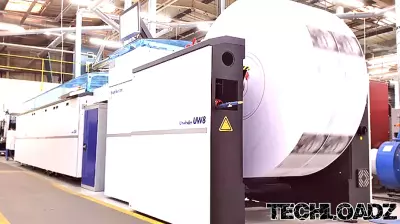Advancements in Autonomous Communication Through Artificial Intelligence
April 29, 2025 - 18:36

Recent developments in artificial intelligence (AI) are paving the way for machines to communicate autonomously, marking a significant leap in technology. This innovative approach allows devices to exchange information and make decisions without human intervention, enhancing their efficiency and effectiveness in various applications.
The ability for machines to interact independently opens up numerous possibilities across multiple sectors. For instance, in space exploration, autonomous communication can facilitate real-time data sharing between spacecraft and ground control, improving mission outcomes. Similarly, in healthcare, AI-driven systems can monitor patient conditions and communicate critical updates to medical professionals, potentially saving lives.
Moreover, the integration of AI technologies in everyday devices, such as smart home systems and autonomous vehicles, is transforming how we interact with technology. These advancements not only streamline operations but also raise important questions about security, privacy, and the ethical implications of machines making decisions on their own.
As research continues to evolve, the prospect of fully autonomous communication systems becomes more tangible, promising to reshape industries and enhance human capabilities in unprecedented ways.
MORE NEWS

February 6, 2026 - 06:27
Amazon Plans to Spend $200 Billion on A.I. and Other Projects This YearAmazon has announced an unprecedented capital expenditure plan, earmarking approximately $200 billion for the coming year. The colossal investment will focus heavily on artificial intelligence...

February 5, 2026 - 21:35
ICG leverages technology, creative leadership, and core values to deliver cutting-edge communicationsIntegrity Communications Group (ICG), a prominent £70-million print and communications enterprise serving a global clientele, is defining its market position through a strategic fusion of advanced...

February 5, 2026 - 04:05
Seagate Technology Holdings PLC (STX) Hit a 52 Week High, Can the Run Continue?Shares of Seagate Technology Holdings PLC (STX) surged to a fresh 52-week peak in recent trading, buoyed by a wave of renewed investor optimism. This rally has market participants scrutinizing...

February 4, 2026 - 02:52
Legal Software Stocks Plunge as Anthropic Releases New AI ToolA new wave of selling pressure hit legal technology stocks on Tuesday, following the highly anticipated release of a sophisticated artificial intelligence tool from leading AI research company...